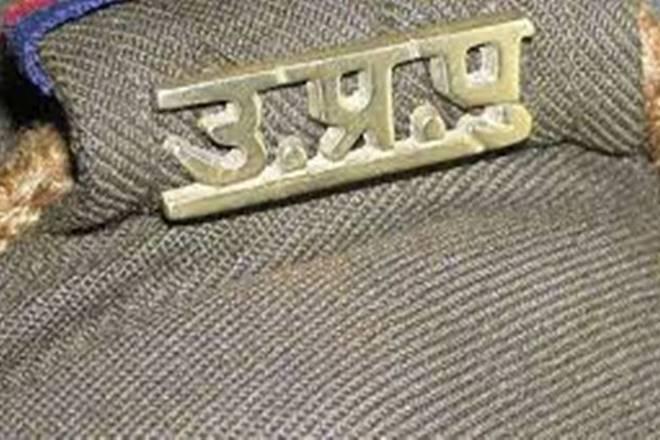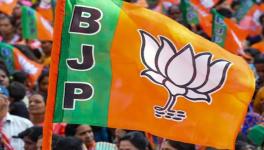The Knock at the Door Now Defines Life in Uttar Pradesh

Representational Image. Image Courtesy: IE
Suppose you happen to be an ordinary citizen going about your life. You could be forgiven for noticing the ubiquitous symbols of the state all about you and their air of importunate menace. The police are possibly the most powerful of these symbols.
Police forces throughout India are feared and loathed rather than trusted because they have come to enjoy unprecedented impunity. They have become a law unto themselves. And nowhere is this truer than in Uttar Pradesh, where Chief Minister Adityanath almost uses the state police forces as his private militia—subject to no control, no oversight other than his.
Soon after coming to power, Adityanath had infamously instituted what came to be known as “anti-Romeo squads”. In the spirit of a “public-private partnership”, this was an enterprise in which hooligans from the ruling Bharatiya Janata Party (BJP) and its organisations, mentored by the police, would harass young couples in public places.
As we have now come to know, this was just one facet of the Adityanath government’s anti-minority—actually anti-Muslim—frame of reference. Thus, the anti-Romeo sqads were a “plan” to prevent what an assortment of Sangh Parivar members call “love jihad”. In their accounts, it is an internationally-backed and financed conspiracy to help Muslim men marry Hindu women and change the demographic profile of India.
Far worse was to follow, as the Adityanath government muscled its way ineluctably into the domain of a police state. Make no mistake; it is just that.
Let us look at how the gigantic business of maintaining law and order gets carried out in Uttar Pradesh and the role of police in this enterprise. On 13 August, the Indian Express reported that the Uttar Pradesh police had carried out 8,472 “encounters”— usually extra-judicial engagements with people supposed to have broken the law—from 19 March 2017, when Adityanath became the chief minister. Also, 3,302 people have been injured in these extra-judicial operations, while 146 people have lost their lives.
The tragic part of the report is that none of this is even remotely fresh off the oven. News of the Adityanath government’s recourse to encounters as a way to handle crime has been doing the rounds for at least two years. Last year, one senior police officer had defended the policy of ‘permanent renditions’ to the media. His justifications for this policy were, and remain, surreal, inane and authoritarian.
The new thing about the report is even scarier than the facts already in the public domain. The Uttar Pradesh police have had a long-standing, though unofficial, programme running: It’s called ‘Operation Langda’. Langda means lame. In the context of this operation, police are shooting various people they are pursuing in the legs.
From all accounts, senior police officials deny any concerted strategy to maim. They do not even maintain figures on how many people are disabled over the long term. Uttar Pradesh Police ADG (Law and Order) Prashant Kumar spins it another way. The high number of those injured in police encounters suggests that killing criminals is not the primary motive of police. The primary aim, he said, is to arrest.
It is not as if this extra-judicial approach to policing has not got noticed. In January 2019, the Supreme Court took anxious cognisance of the practice and its scale. But not much has been done to arrest the slide. We must understand that policing by ‘encounter’ is not a form of policing. It is the equivalent of loosening yet another army of armed thugs into the system, this one with government backing. An observation once made by Justice AN Mullah of the Allahabad High Court comes to mind: “...there is not a single lawless group in the whole of the country whose record of crime comes anywhere near the record of that organised unit which is known as the Indian Police Force.”
It is what has happened in Uttar Pradesh. The police force has emerged as yet another band of lawless people with guns and government backing in a state where all essential features of law and order or civic institutions have entirely collapsed. Unfortunately, encounter policing was never meant to fight crime and somehow pull Uttar Pradesh off the brink. Its objectives were much more sinister. The primary purpose of unleashing the police without any responsibilities attaching to their actions is strategic. It aims to attack, marginalise and scare the minorities and all dissidents to make their existence in the state politically redundant. The same goes for the record of the Delhi Police and its role in the capital. The second objective is infantile; to project Adityanath as the man who can get things done—whether vaccination, breathing out oxygen or keeping crime off the streets.
Unfortunately, given the vacuously shambolic handling of the pandemic and the soaring crime graph in his Uttar Pradesh, with crimes against women zooming, Adityanath attempt to position himself as some gift to humankind gets lost in action. Most people know Adityanath for what he is.
It is possible, however, that the Uttar Pradesh project is not a sole proprietorship of Adityanath. The ownership of the project is perhaps collective, with Adityanath playing CEO. The project is not so much a menu of immediate goals but creates a space for many styles of governance. In other words, Uttar Pradesh is the new Gujarat on its way to create a new model of governance.
The current prime minister used a tragedy to foment anti-minority pogroms in his state while he was chief minister. This strategy paid off handsomely, with the BJP virtually unassailable in a State it has run for a quarter-century. The experiment in Uttar Pradesh is on a larger scale, given it is thrice the size and as much more complex in terms of social weave and political alignments.
If the BJP wins another term in Uttar Pradesh and at the Centre, it will continue the harassment at every level. And when the minorities and dissidents get tuckered out, the jackboots will be at their doors: In the early hours of the morning, when they are neither asleep nor fully awake. The police state will finally have arrived, all trappings of democracy abandoned.
The writer is an independent journalist and researcher. The views are personal.
Get the latest reports & analysis with people's perspective on Protests, movements & deep analytical videos, discussions of the current affairs in your Telegram app. Subscribe to NewsClick's Telegram channel & get Real-Time updates on stories, as they get published on our website.
























